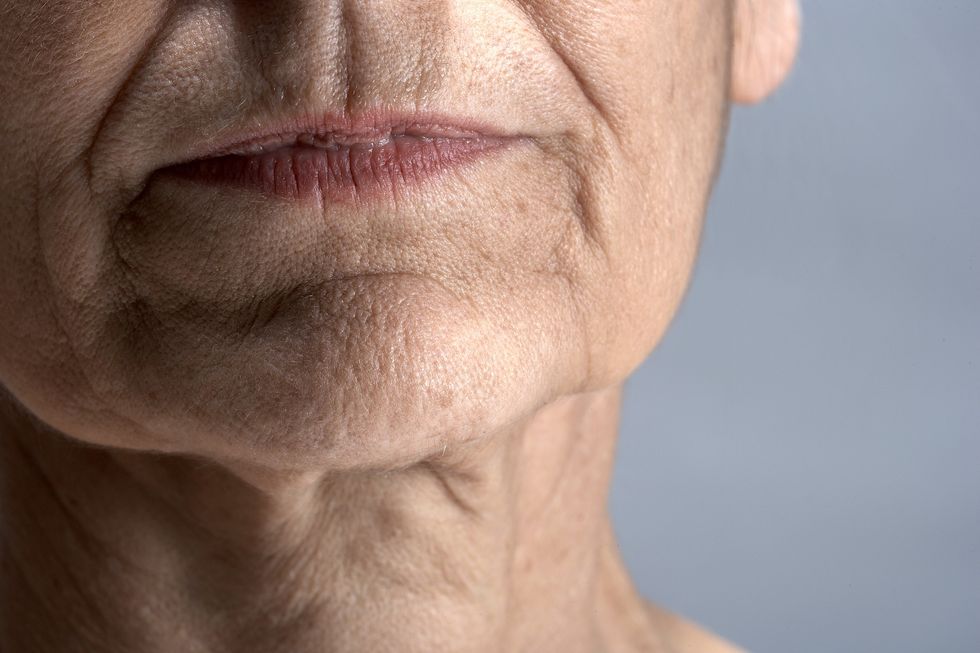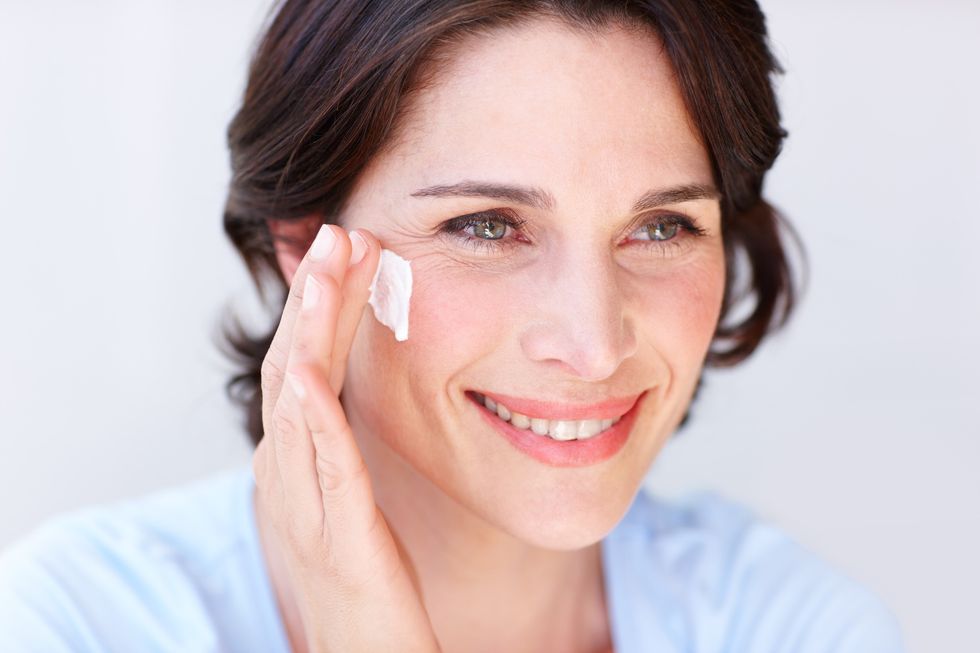How can I get rid of jowls? The skin care step considered a 'must' to slow collagen breakdown
GB NEWS
|An expert shares her anti-ageing skin care tips

GB News is speaking to skin care specialists about the most common concerns among women in their 40s, 50s, and beyond. This time, a dermatologist revealed why you have jowls and what you can do about them
Don't Miss
Most Read
Latest
As you age and evolve, your complexion does too; fine lines and wrinkles develop, skin becomes thinner, and dryness emerges on once-smooth areas.
At the same time, tautness turns into looseness, leading to the gradual formation of jowls.
But while ageing is inevitable, and it's impossible to look 20 at 60 (no matter how hard you try), there are certainly some things you can do to turn back the clock.
In conversation with GB News, consultant dermatologist Dr Paul Farrant offered an insight into jowls, highlighting both causes and natural remedies.
**ARE YOU READING THIS ON OUR APP? DOWNLOAD NOW FOR THE BEST GB NEWS EXPERIENCE**
What are jowls, and why do I have them?
Jowls, defined by the dermatologist as "the loose or sagging areas of skin that appear along the jawline", are among the most common signs of ageing.
They form when the skin starts to lose its "natural firmness and elasticity", making the jawline look less defined than it once did, the expert explained.
Dr Farrant said: "It's a completely normal part of ageing, but it's also one of the most common skin concerns for women over 40."
The expert explained: "In women, hormonal changes around menopause slow cell turnover, while a loss of skin support all add up to a more noticeable sagging along the lower face.
 GETTY IMAGES |
GETTY IMAGES | Jowls are 'the loose or sagging areas of skin that appear along the jawline'
"From our 40s onward, the rate of collagen loss really accelerates, which is why this concern tends to show up around this time."
But while ageing is a major player, external factors such as sun exposure and smoking can contribute.
Overlooked lifestyle factors like habitual facial expressions or sleeping positions can also play their part.
"Of course, genetics can play a big role too. If jowls run in your family, you're more likely to develop them earlier," the dermatologist said.
LATEST DEVELOPMENTS:
 GETTY IMAGES |
GETTY IMAGES | 'Daily SPF helps protect your skin from UV damage that speeds up collagen breakdown'
How can I combat jowls?
Skin care
While some sagging is inevitable, it's certainly possible to reduce the appearance of jowls or slow their progression.
Dr Farrant advised: "A consistent skin care routine is a great place to start. Using a moisturiser that contains ingredients like peptides, retinoids, or hyaluronic acid can help keep the skin hydrated and support its structure.
"As always, daily SPF is a must – it helps protect your skin from UV damage that speeds up collagen breakdown."
Some people swear by practices like facial yoga and facial massage to sculpt their jawlines.
The dermatologist advocated for this, explaining that facial massage, especially when applying products, "can help stimulate blood flow and gently tone the muscles".
"Simple techniques like using upward strokes along the jawline may make a difference over time," he concluded.
Lifestyle
"Lifestyle plays a role, too," the dermatologist revealed. "Staying well-hydrated, getting enough quality sleep (preferably on your back), and not smoking all contribute to better skin resilience."
Your diet matters as well. Skin care enthusiasts should enjoy a diet rich in vitamin C, healthy fats, protein, copper, and zinc to support collagen production.
As for foods to avoid, cutting back on sugar and alcohol "can help slow down visible signs of ageing".
Dr Farrant concluded: "While these natural methods won't completely reverse jowls, they can soften their appearance and improve skin quality overall.
"For those wanting more noticeable results, professional treatments such as ultrasound or radiofrequency skin tightening, or subtle use of injectables, can provide a lift – but starting with consistent, at-home habits is always the first step."
If you decide to go down the cosmetic treatment route, always ensure you do your research and that a professional is administering it.










